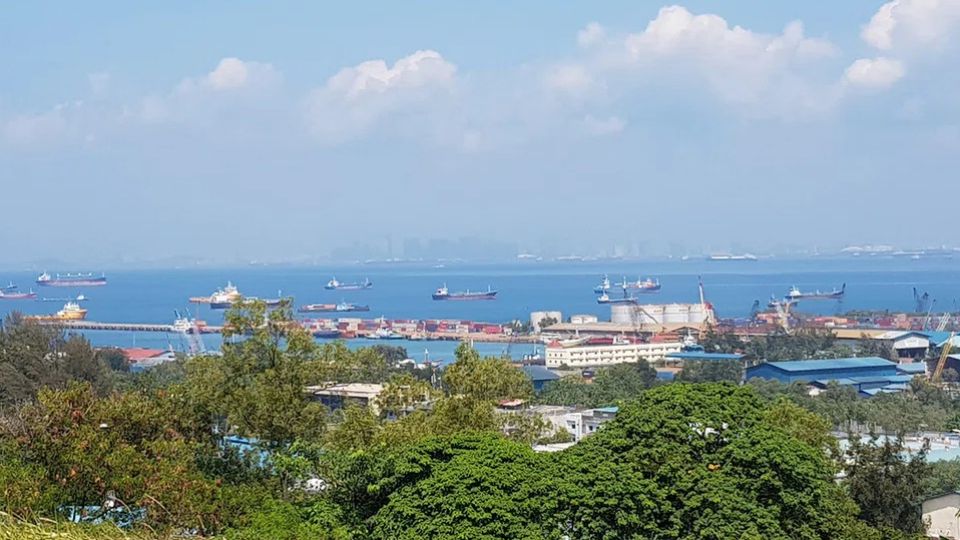October 31, 2025
JAKARTA – Terrorism analysts have dismissed any immediate threat to Indonesia and its neighbours following the announcement of US President Donald Trump’s 20-point Gaza peace plan earlier in October.
At the time, Batam authorities tightened supervision at ports and immigration checkpoints amid concerns that returning foreign terrorist fighters (FTFs) could exploit the Indonesian island’s proximity to enter Malaysia and Singapore.
This comes as the peace plan may cause some terror groups to lose their bases of operation in Syria, Iraq and other conflict zones in the Middle East, causing their members to return home, including to Indonesia.
“Ideologically, these FTFs still want to fight to establish an Islamic state (in the Levant region). Returning to Indonesia amounts to leaving Islam, which automatically makes them an infidel because of embracing democracy,” Mr Khoirul Anam, a terrorism analyst at Universitas Islam Internasional Indonesia, told The Straits Times.
“Being in Syria for them means being closer to heaven. According to the apocalyptic prophecy that they believe, all Muslims will gather there at the end times and will be saved and victorious.”
The FTFs, many of whom are said to be based in north-eastern Syria, are likely to remain there, he said. This is primarily due to their belief in a prophecy and the vision of establishing an Islamic state in that region.
ISIS followers believe that Dabiq, a small village in northern Syria, will be the site of an apocalyptic battle that will herald the “Day of Judgment”.
But most Muslims, including scholars, have rejected this interpretation.
On Oct 22, the Jakarta Post reported Batam, Rempang and Galang city police chief Zainal Arifin as saying that the authorities have tightened supervision of migration gateways, but have not identified any specific threat.
Senior commissioner Zainal said the police alert is based on migration and dispersion theory, which suggests FTFs may return to their countries of origin when radical groups lose their territories, or they may spread to other regions when a situation is stabilised.
He said that the country’s police also work together with police forces in neighbouring Malaysia and Singapore through a cooperation initiative arranged by the Indonesian National Police headquarters.
In response to the Batam alert, Singapore’s Ministry of Home Affairs (MHA) on Oct 28 appealed to Singaporeans to stay vigilant and report any suspicious persons or activities to the police immediately, whether they are in the country or overseas.
Batam is about an hour’s ferry ride from Singapore.
MHA said that while there is presently no specific or imminent threat to Singapore, the general threat of terrorism to the country and the region remains high.
In 2016, a district court in Jakarta sentenced six Indonesian militants to between three and four years in prison for conspiracy to commit terrorism after planning to fire a rocket at Singapore’s Marina Bay from Batam.
In 2022, Indonesian preacher Abdul Somad Batubara and six of his travel companions were denied entry into Singapore after arriving from Batam. According to MHA, he had a history of extremist teachings that are not acceptable there.
Concerns over the return of FTFs came after President Trump announced on Oct 8 that Israel and Hamas had reached a long-sought deal for a Gaza ceasefire and hostage release.
Mr Anam’s research estimated that there are more than 1,500 Indonesian FTFs and family members – which include their wives and children.
Mr Anam said out of those, only roughly 500 have been documented, with their identities known to the authorities.
Mr Anam, whose research focuses on the legal aspects of Indonesian FTFs, said they are predominantly in Syria, while a minority of them are in Pakistan, Yemen and the Philippines.
He noted that Indonesia is the only country in the world that adopts a non-repatriation clause.
Since 2020, Indonesia has rejected the repatriation of its citizens who had travelled overseas to join ISIS and other militant movements overseas.
Dr A’an Suryana, a visiting fellow at ISEAS – Yusof Ishak Institute, also downplayed any new security threats in the FTF’s countries of origin following the peace deal.
“Indonesians who came to Palestine were predominantly paramedics and social workers. They did not go there to be combatants,” Dr A’an told ST, refuting concerns over the FTFs.


